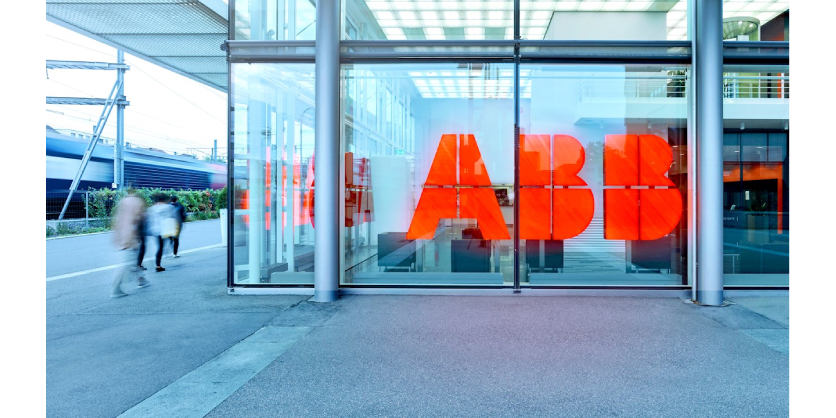Smart Buildings: the Smart Choice for Sustainability
October 17, 2023

By Ali Dika
The sustainability benefits of smart homes are well publicised and those of us who have digital power outlets, smart thermostats and automatic lights know firsthand about the energy and cost savings. However, much less discussed is the broader adoption of smart building technology by companies and industries. With buildings generating nearly 30 percent of all greenhouse gas emissions,1 it would be impossible to ignore how quickly our path to net zero would expedite if entire sectors adopted them.
That may seem daunting for companies with well-established infrastructure, however smart, streamlined digital solutions do exist. Not only do these solutions exist, but they can make companies more competitive, efficient, and consequently more attractive for other companies to do business with.
Facility operators and managers, whose job is to find cost savings and increase building safety, can digitize their electrical and mechanical infrastructure and couple it with a smart software platform. Not only will this lower their energy spend, but it will also contribute positively to the environment.

Building smartly
Existing buildings with conventional infrastructure, can be retrofitted with the proper hardware and cloud software to become smart, integrated buildings with inter-connected systems. Once online, building facility managers are equipped with energy and predictive maintenance data in real-time, a feature that has proven to optimize energy consumption and reduce both operational and energy costs by 25 per cent.2
Smart buildings have digital energy and asset management systems—such as ABB Ability Energy and Asset Manager—that capture vast amounts of data. That data is then analyzed and can be accessed on a fully integrated cloud-based platform. In addition to producing reports and analyses, the system provides insights that enable smarter (and even automated) decision-making. Technologies like artificial intelligence (AI), machine learning (ML) and automation combine to create a system that keeps getting smarter and calibrates itself over time.
This translates into smarter, evidence-based decisions that can positively impact cost savings, reduce carbon footprint, and create a healthier environment for occupants.
Healthier planet, healthier people
Digital, contactless environments in buildings provide significant health benefits, especially when health safety policies are in place (like in hospitals). At ABB, they’re also seeing a greater focus on building occupant flow, air ventilation and air quality across sectors. Correspondingly, the sensors in smart buildings track energy consumption, the number of occupants and how they use resources and space. This data can then be utilized to inform decisions about the use of space and resources as well as ways or areas to improve air quality.
Smart buildings are the optimal solution for tracking this kind of data. They are also the obvious option for reducing the building sector’s carbon footprint—whether retrofitting old buildings or constructing new ones. And that will help in achieving net-zero emissions for buildings. Thankfully, current trends are leaning towards smart systems and green buildings.
Tracking consumption to stay on track to net zero
While the technology has existed for some time, government initiatives typically propel more widespread adoption. Canada, for example, has implemented the Smart Buildings Initiative (which applies to federal government buildings) and the Canada Green Building Strategy (which applies to the entire building sector). These programs include guidelines, requirements and penalties related to energy efficiency and sustainability in buildings—targets that, as they’ve seen, smart building products play a major part in achieving.
While these initiatives share ambitious goals, they drive industry-wide change and accelerate the adoption of the technology that will make a tangible difference—like current advances in AI and its potential for reaching optimal efficiency.
It’s clear that industry across all sectors stand to benefit from the energy efficiency gains and the cost savings of the smart building revolution. If adoption continues to gain momentum, cities will become smarter, more sustainable and attractive places to live.
For more information about ABB Canada’s smart buildings solutions, visit, https://new.abb.com/ca/segments/buildings-and-living-solutions.
Let ABB discuss your project
If you are looking for some inspiration, visit ABB’s Case Studies website for concrete examples of ABB smart buildings projects, or contact them here.

About the author
Ali Dika is a seasoned professional with over a decade of expertise in smart building technology. After joining the ABB team over 10 years ago in Dubai, United Arab Emirates, Ali currently serves as Product Director for Smart Power & Smart Buildings at ABB Canada, where he plays a key role in shaping the industry’s future. With a strong track record in innovation and customer relations, Ali’s career reflects his commitment to excellence and leadership in the smart building sector. Connect with Ali on LinkedIn.
Endnotes
- Canada Green Building Council. “LEED: The global standard in green building.” Accessed June 27, 2023.
- “IKEA boosts HVAC energy efficiency by 25 percent” Accessed September 18, 2023.
Related Story
ABB Helping to Prepare Students for Future of Work
ABB helping to prepare students for future of work. The future of work is changing. Automated technologies are increasingly a part of the working world, which requires a new generation of tech-savvy employees who can master the technologies and find new ways to work with them.

